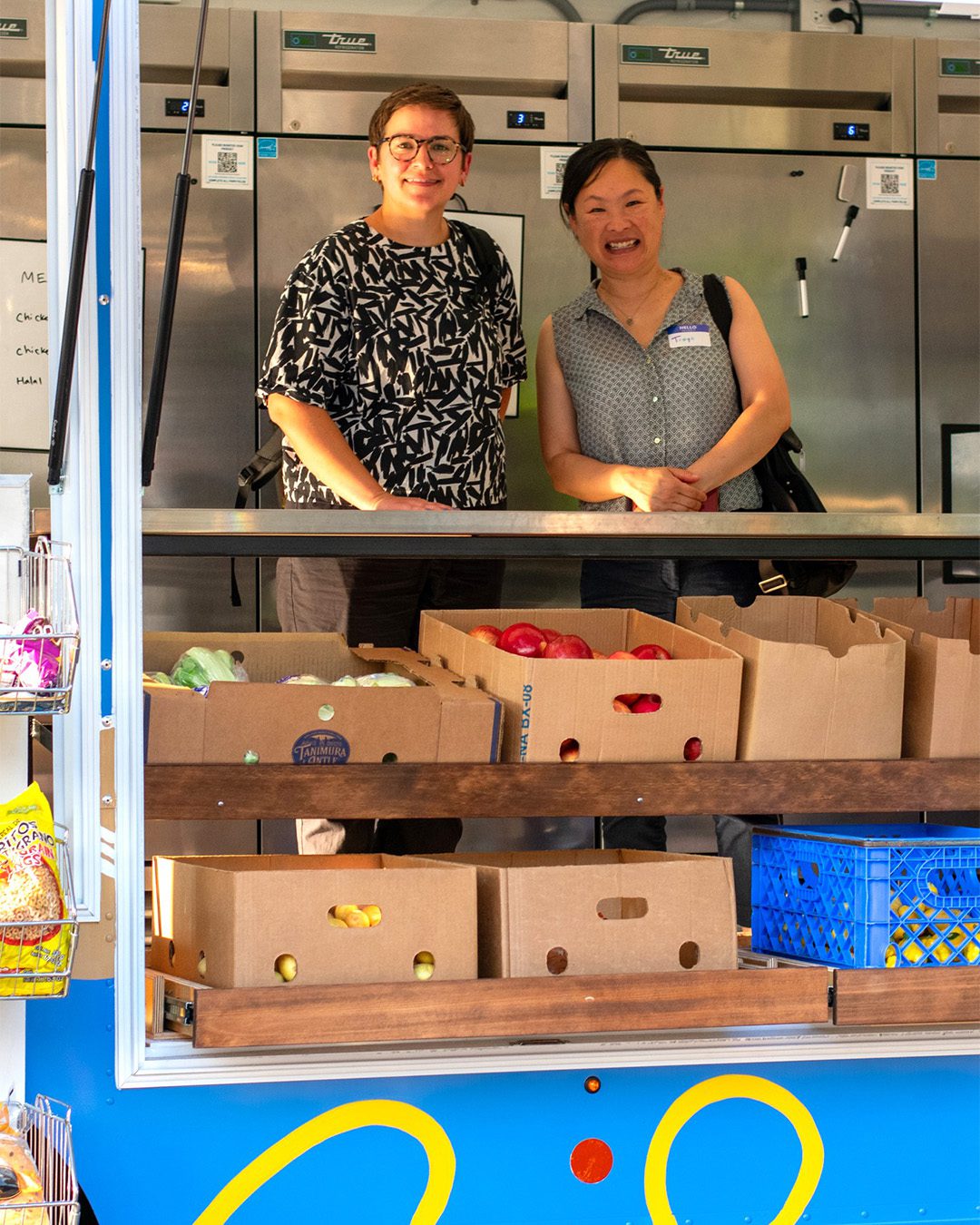Community Corner highlights the work of Seattle Human Services’ community partners in their own words. Our goal is to gather stories and photos that illustrate their amazing work on behalf of the people of Seattle. This post was provided by Rehana Lanewala and Kirby Lochner at FamilyWorks (also follow on Facebook , Instagram, and LinkedIn).
What is your organization’s origin story, and what role does it fulfill in your community?
FamilyWorks is here to ensure our North Seattle neighbors have what they need to thrive. We serve families who have been marginalized by food insecurity, economic hardship, and racial injustice. Through our Food Bank, Family Resource Center, expanding mobile and satellite service locations, and a broad network of community partners, we provide meaningful and culturally responsive services to nearly 6,000 households each year.
FamilyWorks was founded in 1995 as part of a community initiative to develop strengths-based family programs. We took over the operation of the Fremont Food Bank (now the Wallingford Food Bank) in 1998. What began 30 years ago as a small food bank and family resource center has grown into a trusted hub where families can access healthy food, stabilizing family programs, and connections to resources that help them thrive.
We see our role as a connector, supporter, and advocate for families. We provide tangible resources like healthy food, diapers, kids’ clothing, and one-on-one resource navigation. We also help families build skills, form their own supportive networks, and foster a sense of belonging through parenting workshops, home visiting, empowerment groups, skill-building classes like cooking or first aid, and community events.
We know families are the best experts on their own lives, so we listen, lower barriers, and connect them with opportunities. Together, we’re building a more vibrant, equitable community.
How does your partnership with Seattle Human Services (HSD) assist you in that role?
HSD funding helps us meet families where they are, both literally and figuratively. With the support of the City of Seattle, we’re able to offer culturally responsive food and family programs that address urgent needs while also connecting families to long-term resources that will help them meet their goals.
HSD’s partnership helps us meet the growing need in our community, keep programs accessible, and ensure our work remains grounded in the voices and leadership of families furthest from justice.
How has your organization grown or developed in recent years?
In recent years, FamilyWorks has expanded well beyond our building walls, reducing barriers for our community to access food and support by bringing our services directly into the places where families live, learn, and grow. New developments include:
- Co-locating our programs in affordable housing communities and North Seattle public schools
- Doubling the reach of our Mobile Food Pantry program with the addition of a second truck that regularly visits 16 locations
- Launching FamilyWorks Groceries to Go, an online market for participants to order groceries from the comfort of their home and schedule convenient pick-up times
- Beginning Promoting First Relationships, a home-visiting program that supports parents and caregivers of children ages 0–5 in building nurturing relationships and deepening their understanding of child development
- Later this year, we’ll be embarking on a major renovation of our Wallingford Food Bank to better meet growing demand in the community, and starting to offer resident support services at a new affordable housing community in Ballard in partnership with St. Luke’s Episcopal Church and BRIDGE Housing
We’ve also invested in staff capacity, including hiring a Director of Programs, and created FARE (Family Alliance for Resource & Engagement), a participant advisory committee that shares decision-making power with FamilyWorks. FARE’s insights and recommendations have informed our programs and policies, including helping design a monthly family-friendly food distribution window, helping us explore a reservation/waitlist and ticketing system to reduce line stress, and suggesting culturally responsive food menus and more family-friendly food options.
Why is it important for HSD and City of Seattle taxpayers to invest in community-led work?
Food, support, and human connection are basic rights that everyone deserves, and a strong community safety net is essential to ensure that a temporary hardship doesn’t spiral into lasting crisis. In our increasingly unaffordable region, many people are just one accident, job loss, or illness away from disaster.
At a time when our federal social safety net is being cut, local solutions are essential to protecting our community from the impacts of those cuts. Community-led work is the most effective path toward lasting change because it’s shaped by the people who know their needs best.
When City of Seattle taxpayers invest in organizations like FamilyWorks, they are funding solutions that are responsive, innovative, effective, and rooted in lived experience. This investment strengthens the local economy, reduces the strain on public systems, and helps build vibrant, equitable communities where everyone can thrive.
How do your organization’s programs and services help to reduce the disparities experienced by people of color living in our region?
Structural racism has created deep inequities in housing, employment, education, healthcare, and access to healthy food. These inequities are not just individual challenges; they have lasting social and economic impacts on entire communities. FamilyWorks programs are designed to reduce these disparities by ensuring families have the resources they need to meet their basic needs, strengthen connections, and build stability.
We partner with culturally specific organizations, offer translation and interpretation in multiple languages, and prioritize placing our programs in neighborhoods disproportionately impacted by poverty and racism. By removing barriers, expanding access, and building community alongside the people we serve, we help create a more equitable Seattle where families of color have the same opportunities to thrive as anyone else.



